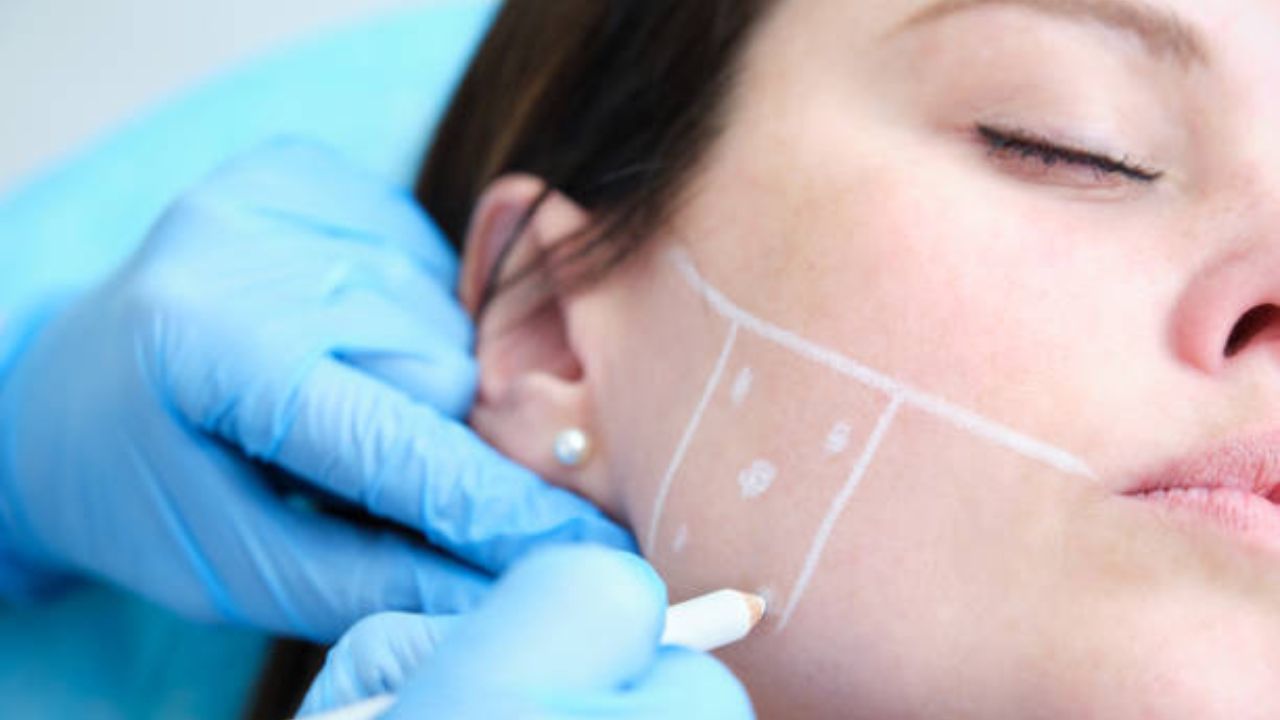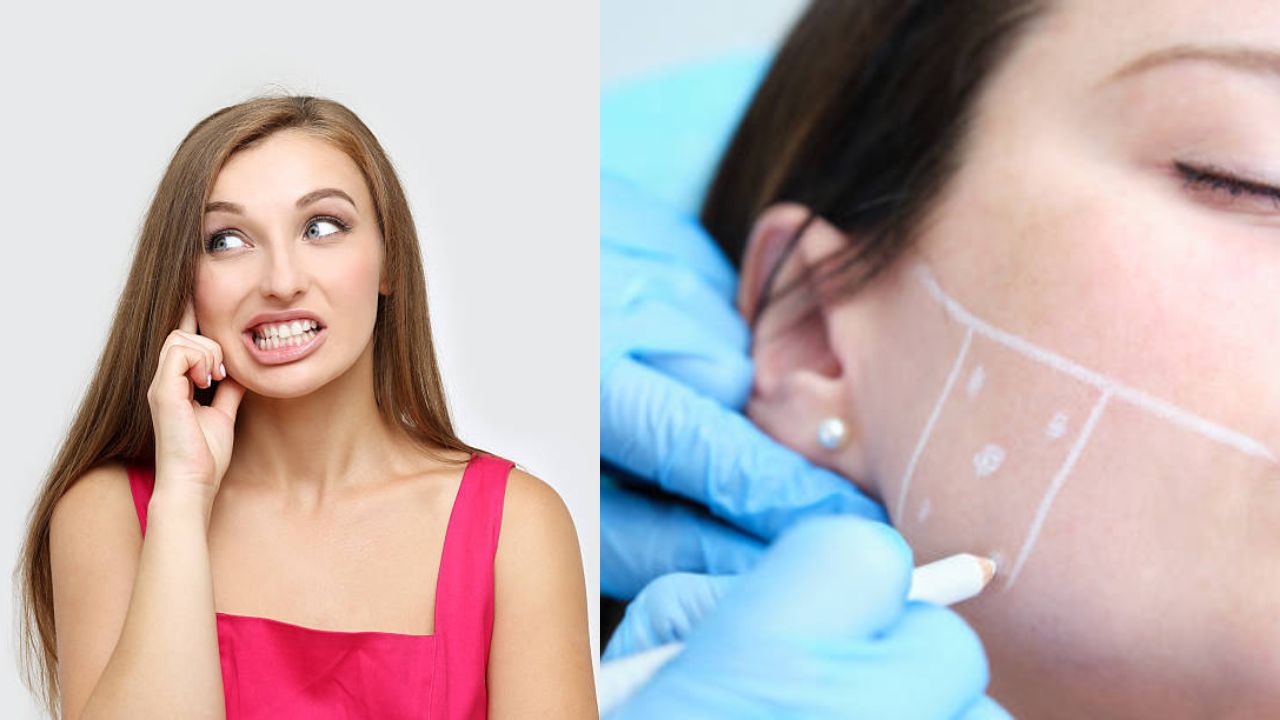Most of the times that Botox is talked about it is related to aesthetic medicine. In this post we will highlight the advantages of Botox for bruxism.
It is one of the latest applications that have been discovered for botulinum toxin and, without a doubt, one of the areas in which it is showing the best results.
Botox for bruxism, in fact, the most effective solution for this annoying problem that ends up affecting the quality of life of people who suffer from it. And, be careful because it is a much more widespread problem than it seems, it is diagnosed at a percentage that is around 20% of the adult population.
Botox refers to improvements to the face and other parts of the body.
Botox or botulinum toxin, also has useful applications in the field of medicine in general, such as migraines, excessive sweating or bruxism.
Bruxism is the involuntary movement of the muscles used for chewing. It consists of clenching the teeth more than necessary and in general, takes place during sleep.
It has several causes: stress, anxiety or malocclusion problems, that is, an incorrect alignment of the jaw.
Today 40% of the population is suffering from this problem. It affects both men and women of any age, although it is more common in younger people.
Bruxism causes you to grind your teeth and, if you suffer from it, you will know that it leads to headaches and muscle aches, as well as stress and anxiety.
Luckily, Botox for bruxism can help you solve this problem without any surgery and its effects last for months.
Data that only confirms the importance of finally having an effective, simple and affordable treatment for all patients with bruxism: botulinum toxin microinjections.
What is bruxism?
Bruxism is understood as the act of clenching the teeth unconsciously and involuntarily, as a consequence of the repeated contraction of the masseter muscles.
It can occur at any time of the day, although greater persistence at night has been detected. The specific causes that originate it are not well determined, but its close relationship with an intense nervous state derived from problems such as anxiety or stress seems evident.
The consequences of bruxism go beyond the wear of the teeth and the retraction of the gums, in the most severe cases it can even fracture the jaw.
But, in addition, it produces other consequences such as insomnia, headache, muscle contractions in the neck and back, vertigo, dizziness or discomfort in the ears.
Without being a serious disease, the truth is that bruxism affects the physical and mental well-being of those who suffer from it. And, as a consequence, it is essential that it be treated as soon as possible
Does botox work for bruxism?

The effect of Botox is to relax the muscles into which it is injected, which is why Botox is used to treat muscle diseases such as bruxism.
The Injections are applied into the masseter muscles and are not painful, since local anesthetic is used topically if necessary.
Generally, between 18 and 24 Botox units are used, although it depends on each case. The professional will be the one who decides how much Botox you need once they have evaluated your case in a particular way.
If you are interested in applying Botox for bruxism, go to one of your aesthetic medicine clinics. Your health professionals will offer you the best advice.
Ask all the doubts you have to your doctor. Tell them what your problem is with all the details you can so that he can act as precisely as possible.
If you have allergies or any important health problem, you should mention it so that it can be taken into account when applying the Botox treatment.
Is botulinum toxin effective for bruxism?
Botox acts directly on the origin of bruxism, since it produces a blockade of the terminals of acetylcholine, the neurotransmitter that causes muscle contraction. In other words, although the brain sends the order to tense up to the jaw muscles, they do not react because they do not receive it.
Hence, the effectiveness of botox for bruxism is indisputable. In fact, it presents practically 100% effectiveness rates among treated people. In addition, it has the added advantage of immediacy, because the results begin to be noticed in the first days.
Benefits of botox for bruxism
Botox can be applied to men and women of legal age without contraindications, unless there is some type of allergy to botulinum toxin or some important health complication.
There are many advantages that Botox has for bruxism and that is why it is becoming the preferred treatment for those who suffer from it.
- It is an outpatient and minimally invasive process, so it does not require hospital admission and you can continue with your life from the first day.
- The injections are given in about 30 or 45 minutes so it will not be a big change in your routine.
- It requires no recovery time and has no noticeable side effects. You will be able to eat and talk normally after treatment.
- The discharge splints will no longer be necessary, so you will gain comfort in your daily life (although in some rare cases they can serve as support for the Botox treatment).
- Your teeth and molars will no longer suffer wear as a result of clenching your jaws.
- Headaches and the effects derived from bruxism will disappear.
- You will notice a more relaxed face in general.
In addition, Botox for bruxism can also solve aesthetic problems.
Some women who suffer from bruxism see their face take on angular shapes as a result of this condition, adopting a more masculine appearance when seeing square jaws.
Botox also solves this problem. Botox returns the face to its normal lines and makes women who suffer from it recover their self-esteem and self-confidence.
The improvement in this sense begins to be visible after the third or fourth week. This improvement also affects men, of course, although it is usually less visible.
In addition, this treatment also helps to eliminate wrinkles that may appear as a result of the pressure of the teeth.
The only side effects that could appear are a small bruise in the area where the Botox has been injected or perhaps a slight itching.
Be aware that bruxism is a disease that cannot be cured. Botox will help you treat the symptoms and the consequences, in short, to significantly improve your quality of life.
How long does botox last?
The effects of botox for bruxism begin to be noticed from the second or third day after its application.
Afterwards, they last between six and nine months, depending on the level of bruxism you have and the amount that has been necessary to inject.
Then you can go back for consultation so that the doctor assesses your situation and determines the possibility of repeating the treatment.
Keep in mind that botulinum toxin is naturally absorbed by your body; hence, new sessions have to be done from time to time.
However, this has another advantage and that is that each time you can space more time between sessions as the body gets used to Botox.
In any case, it is normal to repeat these treatments twice a year at most.
Does botox treatment for bruxism have side effects?
The botox for bruxism is safe and does not involve any side effects. One of the reasons for its effectiveness is that it addresses the problem right where it originates, the masseter muscles.
In addition, the amount of botulinum toxin that is injected is absolutely measured, so that no other area of the face can be affected. Therefore, the idea that botox produces facial paralysis, total or partial, must be ruled out.
How much does botox cost for bruxism?
The price of Botox for bruxism ranges between 200 and 400 euros, although it will depend on the amount that needs to be injected.
When you have to repeat the treatment the price can be lower. This is because it probably won’t be necessary to apply the same amount as the first time.
If you have already decided, make an appointment at your near aesthetic clinic to evaluate your case and offer you a budget without obligation.
